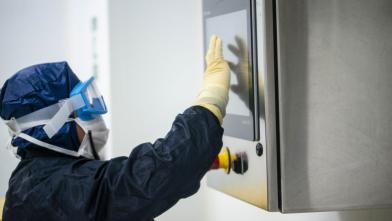The European Commission has unconditionally approved the proposed acquisition of Seagen by Pfizer, under the EU Merger Regulation. The Commission concluded that the transaction would not raise competition concerns in the European Economic Area (‘EEA’). Seagen and Pfizer are pharmaceutical companies. Seagen specialises in oncology therapies, primarily in antibody drug conjugates (‘ADCs’). Pfizer’s oncology portfolio largely consists of hormone therapies, immunotherapies, and targeted therapies. In the EEA, the companies’ marketed and pipeline products overlap in the treatment of several cancer types such as breast, bladder, colorectal, cervical and lung cancer, as well as in lymphoma and leukaemia. By acquiring Seagen’s ADCs technology, Pfizer wishes to diversify its portfolio and accelerate the development and commercialisation of Seagen’s ADCs drugs.
Based on its market investigation, the Commission found that the merger would not significantly reduce competition in the markets where their activities overlap within the EEA.
In particular, the Commission focused its investigation on potential competition between the parties’ marketed and pipeline products, and it found that the transaction would not lead to either the:
*discontinuation, delay or re-orientation of the parties’ ongoing and overlapping lines of research or pipeline projects. The parties’ activities target different segments of patients, and they are not substitutable since they do not have the same mode of action and concern different lines of treatment; or
*loss of innovation resulting from a structural reduction of the overall level of innovation, given that there is a significant number of players engaged in research & development activities in the broader oncology space and, more specifically, in ADCs, an area in which Pfizer wishes to grow.
Moreover, the Commission found that the transaction was unlikely to have negative impact on prices, given that the parties’ offerings are differentiated and complementary and that the markets for the treatment of the various cancer types examined are sufficiently competitive. The Commission therefore concluded that the proposed merger would not raise competition concerns and cleared the transaction unconditionally.
Companies and Products
Pfizer, headquartered in the US, is a pharmaceutical company active worldwide in the research, development, manufacturing, and marketing of innovative medicines. Pfizer is organised around six key business areas. Pfizer’s oncology business includes brands of biologics, small molecules, immunotherapies, and biosimilars across a wide range of cancers.
Seagen, headquartered in the US, is a biotechnology company that develops and commercializes targeted therapies to treat cancer. Seagen focus particularly on the development of a type of cancer therapy known as ADCs. ADCs are made up of an antibody chemically linked to a cytotoxic agent (the payload), enabling the payload to target specific cancer cells whose receptors or proteins bind with the antibody.
Merger Control rules and Procedures
The transaction was notified to the Commission on 14 September 2023. The transaction was notifiable only in Germany, Austria, and Cyprus. The parties requested the Commission to review the transaction pursuant to Article 4(5) of the EU Merger Regulation that allows the Commission, upon parties’ request, to review transactions without an EU dimension but that are notifiable in at least three Member States.
The Commission has the duty to assess mergers and acquisitions involving companies with a turnover above certain thresholds (see Article 1 of the EU Merger Regulation) and to prevent concentrations that would significantly impede effective competition in the EEA or any substantial part of it. The vast majority of notified mergers do not pose competition problems and are cleared after a routine review. From the moment a transaction is notified, the Commission generally has a total of 25 working days to decide whether to grant approval (Phase I) or to start an in-depth investigation (Phase II).



